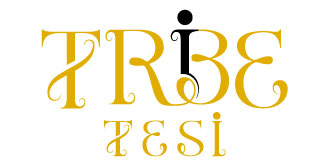The concept of work-life balance is not new – The phrase “work-life balance” was first used in the UK in the late 1970s, but the concept has been around for centuries. Ancient civilisations such as the Greeks and Romans valued a balance between work and leisure.
The fast-paced nature of modern society has made it increasingly difficult for individuals to strike a balance between their work and personal lives. With technology constantly keeping us connected to our jobs, it’s no wonder that many people struggle to find a sense of harmony in their daily lives. However, achieving a work-life balance is essential for physical, mental, and emotional well-being, as well as for overall success and happiness.
While many people, including myself viewed work-life balance as a luxury, I have come to realise that it is actually a critical aspect of our lives. Achieving a balanced life leads to lower levels of stress and improved health, as well as increased productivity and creativity at work. It’s not just about having enough time for both work and personal life, but also about finding a balance in terms of energy and focus.
This article will explore the science and facts behind work-life balance and provide practical tips and tricks for achieving a harmonious life. Whether you’re just starting out on your journey or looking to make changes like me in your current approach, this article will provide the guidance and inspiration you need to find the right balance for you. So, let’s take a closer look at what it means to strive for a work-life balance and how you can achieve it in your own life.
Either you run the day, or the day runs you.
- Achieving work-life balance reduces stress – Studies have shown that individuals who have a better work-life balance experience lower levels of stress, anxiety, and depression. This can lead to better physical health and improved overall well-being.
- Improving work-life balance can increase productivity – a balanced life leads to a better work performance, as well as increased creativity, focus, and motivation.
- Work-life balance is not just about time – it’s not just about having enough time for work and personal life, but also about finding a balance in terms of energy and focus.
- Achieving a work-life balance is a personal journey – what works for one person may not work for another. It’s important to find what works best for you and your individual needs.
Achieving work-life balance reduces stress – Studies have shown that individuals who have a better work-life balance experience lower levels of stress, anxiety, and depression. This can lead to better physical health and improved overall well-being.
Boundaries Are Important
- Set boundaries – decide what’s important to you and set boundaries to protect your time. Whether it’s cutting off work emails after a certain hour or setting aside specific times for self-care, taking control of your time will help you feel more in control.
- Prioritise self-care – take care of your physical, mental, and emotional well-being. This can include exercise, meditation, and spending time with loved ones.
- Communicate with your employer – let your boss know what you need to be successful, both in your job and in your personal life. If you need flexible hours or the ability to work from home, be honest and ask for what you need.
- Make time for the things you love – whether it’s hobbies, travel, or just spending time with friends and family, make sure you’re doing things that bring you joy.
- Learn to say no – saying no to things that don’t align with your priorities can help you focus on what’s most important to you.
By all of us following these tips, we can work towards a better work-life balance and enjoy the benefits of a happier, more fulfilling life. Whether you’re just starting out or looking to make changes, the key is to be intentional about your choices and prioritise what matters most to you.

